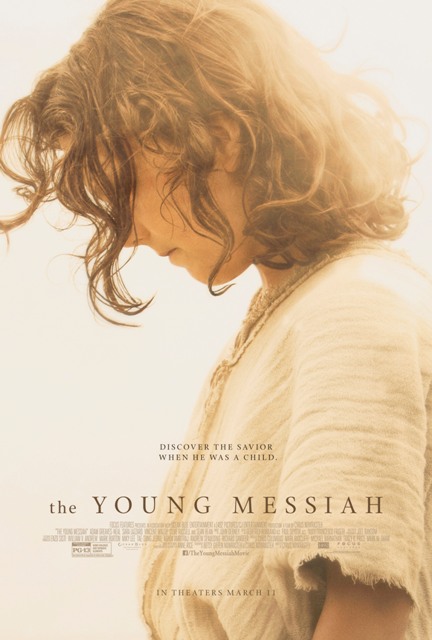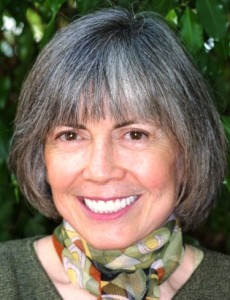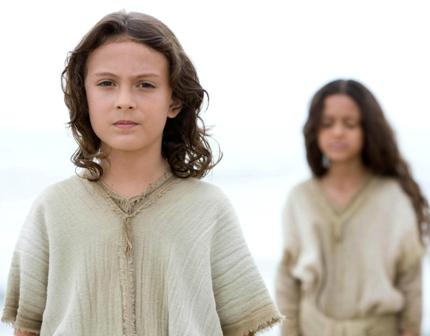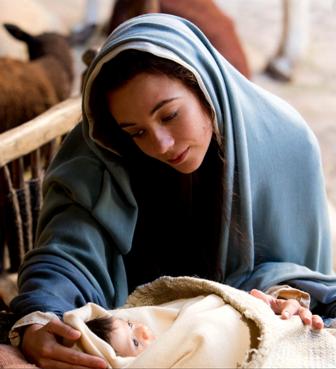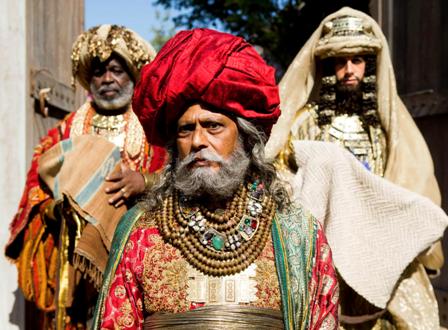Young Messiah movie: Jesus’ childhood imagined
By Rusty Wright
Seven-year-old Jesus is accused of killing a bully … then raises him from the dead. He restores life to a dead bird and sight to a blind man, heals his ailing uncle. Sound familiar? Maybe not.
But – for the sake of argument – suppose you were this Jesus. What would you think and feel? Perhaps you’d be shocked by your power, confused about its implications for your life. What if your parents or relatives gave oblique answers, hiding “family secrets” from you. Would you feel perplexed? Fearful?
Welcome to novelist Anne Rice’s fictional take on Jesus’ eighth year: The Young Messiah film, adapted from her novel Christ the Lord, Out of Egypt. Rice – yes, the famous vampire novelist, a former atheist who became convinced Jesus is God’s Son – presents fascinating and touching speculation on how the child learned who he really was.
Journey of discovery
The historical record on Jesus’ youth is sparse. So, how did he learn of his divinity and mission? A heavenly mind zap? A prophetic proclamation? Handwriting on a wall?
Rice and the filmmakers take us on a hypothetical journey of discovery inside the mind of the young Jesus. They sensitively portray his love for his mother Mary and desire to feel safe in her arms, his respect for her husband Joseph, his playtime adventures. We see delight in childhood friendship, curiosity in learning, sadness over violence.
He ponders clues regarding his birth that occasionally slip from relatives’ unguarded lips – pieces to the identity puzzle he feels compelled to solve. How he solves it is an artful story that I won’t spoil for you.
Historical fiction
The Young Messiah is, of course, historical fiction. The New Testament is largely silent about Jesus’ youth. At age twelve, he amazed religious leaders with his wisdom. Gospel writer Luke records, “Jesus grew in wisdom and in stature and in favor with God and all the people.”
Rice adapted the resurrected bully and bird stories from The Infancy Gospel of Thomas, which is apocryphal (i.e., of doubtful authenticity). She admits these stories are “legends.”
Rice’s spiritual journey
Anne Rice’s personal spiritual journey has been circuitous. Raised a Catholic, she became an atheist in university. Vampire novels propelled her to fame.
The Jews’ survival over the centuries became the fascinating “mystery that drew me back to God. It set into motion the idea that there may in fact be God.” She returned to faith and Catholicism in 1998.
Writings of Bible skeptics significantly influenced her. She says many “lacked coherence” and “were full of conjecture. Some books were no more than assumptions piled upon assumptions. Absurd conclusions were reached on the basis of little or no data at all. …I discovered in this field some of the worst and most biased scholarship I’d ever read.”
In 2002, Rice dedicated her life to writing for God. Christ the Lord, Out of Egypt (2005) and Christ the Lord, The Road to Cana (2008) sought “to bring to life for the reader Jesus Christ, the Second Person of the Blessed Trinity, and the God who loved us so much that He came to live amongst us for over thirty years before He died for our salvation on the Cross, and rose from the dead.”
Vampires calling?
Her vampire world seemed behind her: “I found what the characters in the vampire novels were looking for. They were groping in the darkness; they lived in a world without God. I found God….”
In 2010, frustrated over issues including bishops’ opposition to same-sex marriage, she renounced her church membership but said she remained devoted to Christ and wouldn’t revive her vampire writings.
“I will never return to that,” she declared. “Those were books I wrote when I was an atheist and they reflected my feelings of being lost in a world without God, and I’m not that person now. … I don’t want to write about people who kill and drink blood to survive.”
In 2014, she returned to writing vampire novels, explaining that in the interim her vampire characters had not been “talking to me.” “Rage and anger” with Hollywood over stalled vampire movie deals made her want to write more vampire novels. She began reading her own, and “then he [Lestat, her vampire protagonist] started speaking” and the ideas flowed.
I’m not exactly sure where Anne Rice’s spiritual quest is at the moment. But The Young Messiah presents an entertaining and emotional look at the one she’s claimed is Christ the Lord.
Rated PG-13 (USA) “for some violence and thematic elements.”
www.TheYoungMessiah.com Opens March 11 (USA) International opening dates
Rusty Wright is an author and lecturer who has spoken on six continents. He holds Bachelor of Science (psychology) and Master of Theology degrees from Duke and Oxford universities, respectively. www.RustyWright.com
Copyright © 2016 Rusty Wright
# # #
Editors: Note pictures below. For access to higher resolution versions of these images and more, check here, here, and here.
